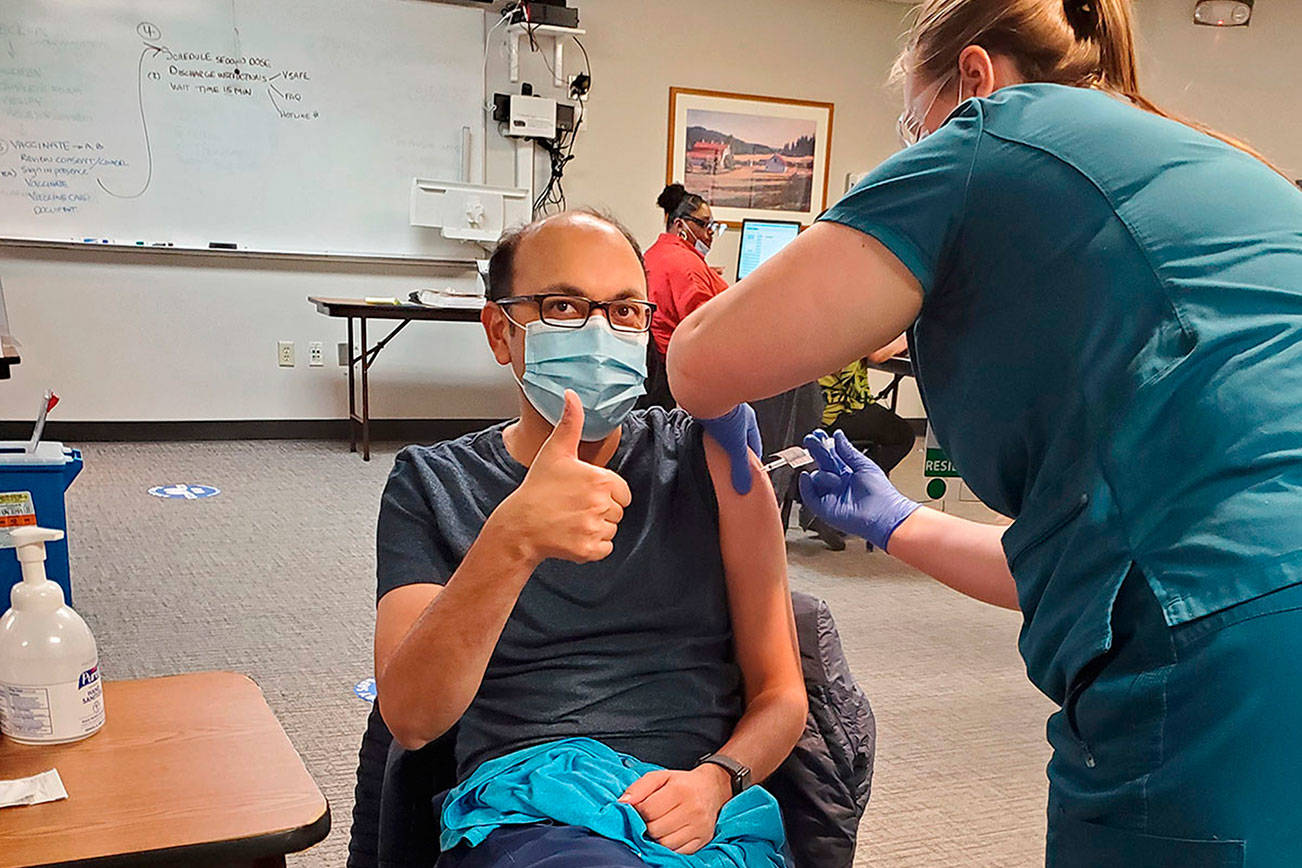As of June 14, King County is more than on pace to meet its goal of 70 percent vaccination coverage for all people over age 16 by June 30.
At 69.2 percent, the county is only 15,000 completed COVID-19 vaccinations away from meeting the 70 percent benchmark. But the data also shows both racial and regional disparities among those who are vaccinated and those who are not.
For South King County, the largest region in the county not named Seattle, only 61 percent of the 605,000 people that live there are vaccinated. All other regions in King County now sit well over 70 percent vaccination completion and have all been there since before June.
With 55,000 people needed to meet the 70 percent benchmark, South King County is not projected to meet the goal until July 27.
When vaccination data is looked at along the lines of racial demographics, it can be seen that some ethnic groups in King County have collectively exceeded the 70 percent benchmark among all regions of the county. This is true of Indigenous and Asian American populations.
However, other minority groups, such as the Latinx and African American populations, are disproportionately under-vaccinated across King County. Neither of these groups have crossed the 70 percent threshold in any part of the county.
The Hispanic/Latinx demographic is largely projected to not meet the 70 percent benchmark until August in most parts of the county, with those living in South King County not expected to meet the goal until mid-September.
The African-American population is largely not expected to make the 70 percent benchmark before June 30, with the exception of East King County, in which 69 percent are currently vaccinated.
With only about 22,000 of the 48,000 Black people living in Seattle being fully vaccinated, that demographic in the region is not expected to meet the June 30 goal until the end of September.
Jeff Duchin with Public Health – Seattle & King County said that there are many unique communities across the county and that the reasons for not yet being vaccinated are different from individual to individual. He said some groups have long-held distrust of the healthcare system and vaccination, while others have not gotten the vaccine for cultural or religious reasons.
Duchin said other folks have a distrust of the vaccine because of safety questions and doubts generated by internet misinformation, with some people believing the vaccine will make them magnetic or infertile.
Others may have poor access to the healthcare system or may even be disenfranchised from it. Duchin said some people are concerned about the side effects of the vaccine and that the vaccine may cause them to take time off of work and lose income.
“Just because people are not vaccinated today, does not mean they will not be vaccinated in the future,” Duchin said.


